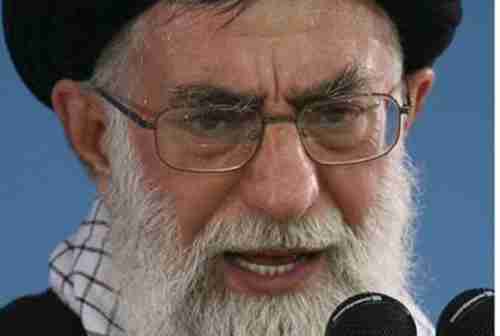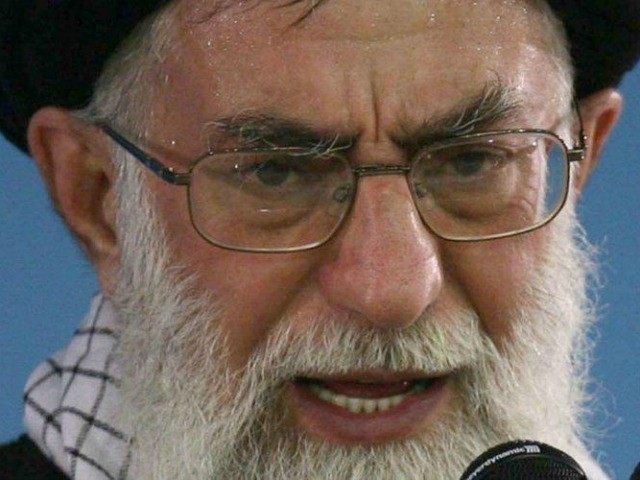This morning’s key headlines from GenerationalDynamics.com
- Khamenei’s illness may signal generational policy change in Iran
- Palestinians vote to end security agreement with Israel
Khamenei’s illness may signal generational policy change in Iran

Iran’s Supreme Leader Ayatollah Seyed Ali Khamenei (Reuters)
Several Arab media reports indicate that Iran’s 76-year-old Supreme Leader Ayatollah Seyed Ali Khamenei has been hospitalized, and is in critical condition after undergoing surgery for an advanced form of prostate cancer.
If the reports are true, and if Khamenei does not recover, then his death could trigger very significant changes in Iran’s policies.
As I have been writing for almost ten years, Iran is a schizophrenic country. The old geezers, the survivors of the 1979 Great Islamic Revolution, are extreme hard-liners, trying to revive the widespread revolutionary fervor that followed the Revolution. A generational crisis war always unifies the entire population behind the leader, with the intention of making sure that nothing so horrible should ever happen again to their children or grandchildren. So they fall back on the old out-of-date formulas that won them the revolution — particularly blaming everything on the United States.
The younger generations, who grew up after the war, think that the old geezers are completely full of crap. This has been obvious since the early 2000s, when Tehran college students started pro-Western demonstrations. The young people like the West, like America, and don’t have anything against Israel. Furthermore, Khamenei has seemed increasingly out of touch with reality in recent years. The result is a chaotic political conflict between the generations that survived the war versus the generations that grew up after the war. This is what always happens during a generational Awakening era, like America in the 1960s.
The death of Khamenei would trigger a major political conflict between two groups of politicians representing, respectively, the two generational positions. If Khamenei’s successor is another hardliner, then policies won’t change. But it’s quite possible that his successor would be another Revolution survivor, but still a reformist. For example, see “2-Nov-13 World View — Growing power struggle in Iran may make Akbar Hashemi Rafsanjani the Supreme Leader”. In that case, significant policy changes would be a real possibility.
As long-time readers are aware, Generational Dynamics predicts that in the coming Clash of Civilizations world war, the “allies” would be the West, along with India, Russia and Iran, while the “axis” would be China, Pakistan, and the Sunni Muslim countries. The death of Khamenei, when it occurs, would be a step in that direction. Jerusalem Post and Israel National News
Palestinians vote to end security agreement with Israel
The Palestine Liberation Organization (PLO), which governs the West Bank, has voted on Thursday evening to end a security co-operation agreement with Israel which dates back to the Oslo Accords of 1993. The announcement calls for
[The suspension of] all forms of security coordination given Israel’s systematic and ongoing non-compliance with its obligations under signed agreements, including its daily military raids throughout the State of Palestine, attacks against our civilians and properties. […]
Israel, the occupying power in Palestine, must assume all its responsibilities in accordance with its obligations under international law.
The final decision will be made by Palestinian president Mahmoud Abbas.
As bad as the relationship has been between the Israelis and the Palestinians in the West Bank, the security agreement has kept it from becoming even worse. The security agreement required the Palestinians to police the West bank, so that Israeli police would not have to do so. It is possible that the Palestinian security forces have prevented some terrorist attacks on Israeli targets.
An end to the security agreement would be a major new crisis in the West Bank. There would be daily confrontations between the Palestinians and the Israeli security forces, with a good chance that the confrontations would spiral into a war, just as they have in Gaza.
The announcement is the latest in a string of tit-for-tat actions by each side against the other. When the State of Palestine joined the International Criminal Court (ICC) in December, Israel was infuriated and promised revenge.
In January, Israel retaliated by cutting payments to Palestinians of fees and tax monies that Israel collects on behalf of the Palestinians on a daily basis, something like $100 million per month. Palestinian negotiator Saeb Erekat called the move an act of “piracy” and a “collective punishment” against the Palestinian people.
The PLO has been unable to pay the salaries of government employees, including the security forces, and so the new announcement is in retaliation for the non-payment of these fees.
Every move by either side has to be interpreted as an attempt to influence the Israeli elections that are coming on March 17. Israel’s prime minister Benjamin Netanyahu is withholding the funds in order to increase his popularity with his right wing. The PLO announced the end of the security agreement in the hope of get Netanyahu defeated. Things should become clearer after March 17. Guardian (London) and Jerusalem Post and Al Bawaba (Palestine) and BBC
KEYS: Generational Dynamics, Iran, Ayatollah Seyed Ali Khamenei, Ayatollah Akbar Hashemi Rafsanjani, Palestine Liberation Organization, PLO, Israel, Palestine, Mahmoud Abbas, International Criminal Court, ICC, Saeb Erekat
Permanent web link to this article
Receive daily World View columns by e-mail

COMMENTS
Please let us know if you're having issues with commenting.